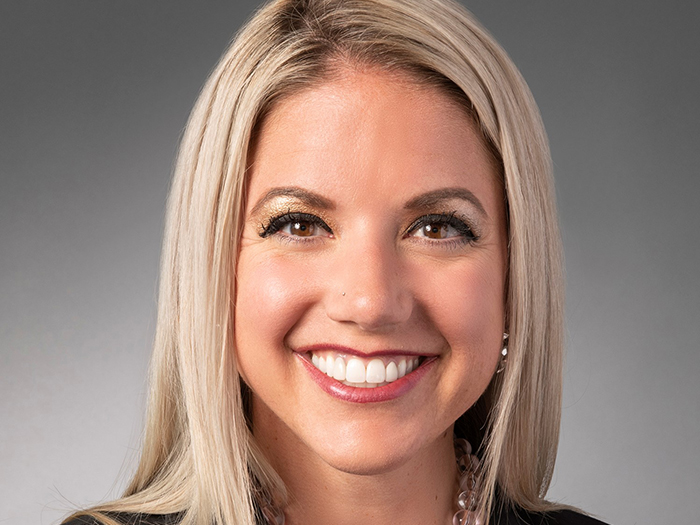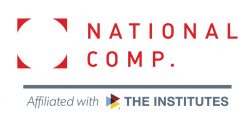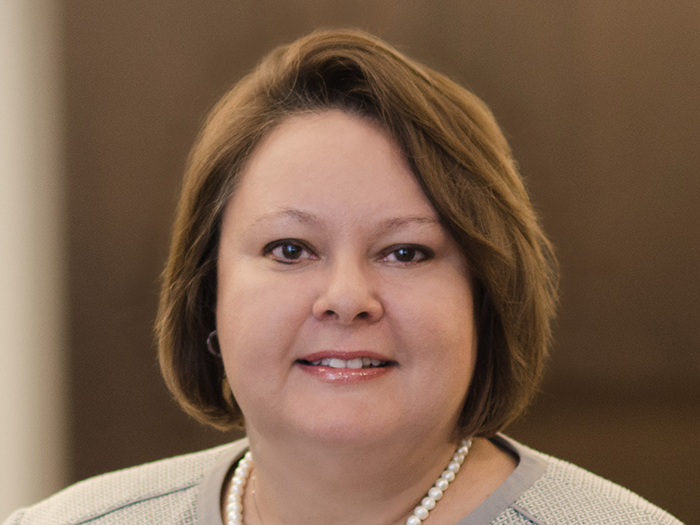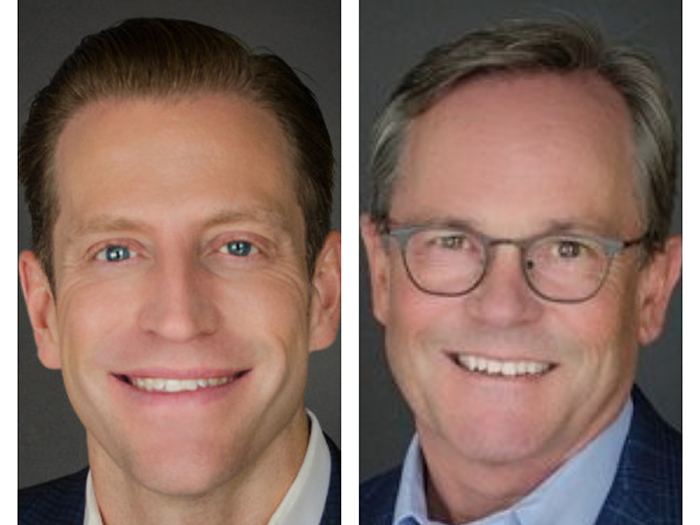6 Questions for Emory Industrial Services’ Dr. Claire Muselman

To know — or even speak with — Dr. Claire Muselman is to know her devout passion for helping those entangled with the workers’ compensation industry. Alongside Adam Lopez and Jeffrey Breskin, Muselman is presenting a session at this year’s National Comp, entitled “Leveraging Loss Trend Analysis, Injury Investigations, and Training for Maximum Benefit,” on October 20 at 12:3o p.m.
She spoke with Risk & Insurance® to discuss her upcoming session, what drives her passion for the injured worker and more.
The following conversation has been edited for length and clarity.
Risk & Insurance: To start, tell me about your current role and the work that you’re doing.
Claire Muselman: I am the chief risk officer at Emory Industrial Services, and that means overseeing the insurance, compliance, regulatory issues, human resources, safety, workers’ compensation, fleet management, training/development and ethical integrity. I look at my job as managing the human capital components of keeping an enterprise alive.
Human behavior is always fascinating, and there are so many components to life you simply cannot make up. Every day, I swear, is drastically changed by the decisions made overnight, changing the trajectory of what the day ahead holds. Many times, this is behavioral pattern related.
It is truly fascinating and wonderful because of the science behind decision-making, human response, adding in some strategic initiatives. It’s really been an encompassing role of everything that I’ve worked up to thus far in my career, from legal to claims to leadership to teaching … every topic has rolled up to this collective position.
I am also honored to hold the title of professor at Drake University. I have the best students. Some of the courses I teach there are business strategy, human resources management, human capital development, self-leadership, business communications and organizational behavior. These classes and components, coupled with my work experience, absolutely aligned for this position at Emory Industrial.
R&I: You’re set to present a session at this year’s National Comp. What can attendees expect?
CM: In our session, we are covering loss trend analysis, which may not pique interest and [may] sound kind of boring, but we are here to make it exciting! There is so much to take away from loss trend analysis, because that is where a lot of human behavior focus is needed to create organizational change.
When we look at the latest trend analysis from a human behavioral standpoint, what are the root causes for workplace injuries? There’s a lot of components that stem from a root cause that, many times, the safety directors, human resources, risk managers or whoever is managing claims will not necessary drill down to at the human behavior level.
Claims managers tend go back to “Well, what is the policy in place with the organization? If you have a policy in place, when is the last time the policy has been followed? What are the accountabilities and the expectations that are not only placed on employees but are on leadership to follow through to ensure accountability?” We must have consistency in execution.
We are leveraging the most recent trend analysis and looking at it from the human behavioral components to focus energy and efforts on how to drill down to the root cause. When we are able to get to that root cause, the “why” can be better understood, and many times, getting to this point stems from proper injury investigation.
When is the last time we have taken a deep look at what transpires during injury investigations? Many times, people put their own personal beliefs or their own biases into these investigations, and they don’t realize that they do it. It is human behavior to draw conclusions when an absence of fact exists; however, during these investigations, we must be able to cultivate awareness around this behavioral pattern.
We must stick to factually based information, through the lens of objectivity, and it is a difficult task for many people to do. Humans are wired for negativity bias psychologically, and then we add in the jaded lens from the injury or claims perspective from the get-go. It happens, and we have allowed people to operate in this mentality.
We need to cultivate awareness and do a better job of preparing people so they can stick to a more objective approach to what happened. We must ensure we have trained employees to approach it the same way through leading by example and paying attention to the words we utilize to describe the investigational components of this process.
I think we see this a lot in workers’ compensation, specifically. People draw conclusions based upon what they think the story is or should be, or what makes the most sense versus what can be proven from objectivity, facts and data. We have the loss analysis, we have looked at the investigations and we are trying to make them more objective. Then we move into “How do we train accordingly to mitigate those circumstances, scenarios and potential safety pitfalls on the front end so these claims and injuries cease to exist?”
We know from the workers’ compensation standpoint if an injured worker or recovering employee (as I am now used to using as my verbiage) feels seen, heard, acknowledged and valued by their employer, they are more likely to return to work and less likely to commit soft fraud, and they will be taken care of through the process.
If anything happens from the adjusting standpoint, the caring and compassionate employer is there to be the safety net. Yet we do not train employers to behave in that manner, and we fail to train adjusters to be more factual on the objectivity lens. We let people use their biases and pass judgment, and thus the workers’ compensation landscape has been formulated around opinion.
Now it is time to decide what could be, and that is my focus in the workers’ compensation space moving forward. No more status quo!
R&I: Why did you feel like this was an important topic to present to attendees?
CM: Historically, the industry has focused so much on numbers and has not considered a human behavioral approach, which has led to the shortcomings we have seen over time. Our session will present a different viewpoint that will be heard in a more consumable manner than it has before.
 Our session can help people really get down to those root causes of their organizational behavior, and how someone from their seat can institute meaningful and effective change to push their landscape forward [toward] mitigation of risk and overall improvement of organization outcomes.
Our session can help people really get down to those root causes of their organizational behavior, and how someone from their seat can institute meaningful and effective change to push their landscape forward [toward] mitigation of risk and overall improvement of organization outcomes.
R&I: You’re very passionate about the work that you do in the workers’ comp industry. What drives that passion for you?
CM: I was a foster child, and I believe that the foster care system and workers’ compensation are incredibly similar. I think they are designed with the best intent to help people. But people tend to profit off human suffering, and I think that happens in both landscapes.
When I look at it from that lens, it is my purpose in life to make people feel less broken and more whole. I am here to make good things happen for people. After being a part of the landscape on the foster side, the workers’ compensation system seemed to be a good fit for me to structure my life purpose to focus on creating an environment where people feel seen, heard, acknowledged and valued.
We, as an industry, have always treated claims as a transaction or a benefit exchange system, and there is so much more to workers’ compensation that can help the injured worker have a better experience through the entire process. And there is such gratification in helping people. More so, it is beyond easy to do, and I am here to show how to do it.
R&I: What’s been your proudest career moment so far?
CM: Right before I left Continental Western Group, a W.R. Berkley Company, in 2021, we created the first-ever Workers’ Recovery Unit. We had a presentation to the company to introduce our operating units to the new CEO, and our team was presenting about what we do.
Every single member of the Workers’ Recovery Unit was able to shine, thoroughly expressing passion towards our mission, vision, values and the reason they do what they do … their “why.” There was nothing more empowering to me than to see a vision that I had had back in 2012 come to life and bloom into what I knew was possible.
You can love the people you work with and make good things happen for people, and that is so empowering and inspiring. This is the way claims should be handled. And in that moment, I knew I was done leading the WRU at CWG, because they did not need me anymore … They were living and breathing the future of what our industry has the potential to be. It was the proudest career moment I’ve ever had.
So … I will conclude this point with this: Empathic claims handling is possible, executional, and I have done it. Why are we not expecting everyone to do this? It leaves such an amazingly positive ripple effect — not only for the injured workers, but it also leaves satisfaction for the adjusters too … and overall organizational impact!
R&I: What advice would you give to young professionals, young women in particular, who are just starting their careers in this industry?
CM: Find your own voice. Figure out what your brand is going to be as an individual … then own it. We are all a unique puzzle, with pieces coated in our own demographics, experiences and geographical makeup. We all have beautiful gifts to give the world, especially from an empathy, emotional intelligence and communication standpoint. There is a lot of power in that ownership of authenticity!
Dig deep into who you are from a self-awareness standpoint, because it is going to be your superpower! Once you can take a deep dive into your own self-leadership journey, you will be able to set appropriate boundaries. Boundaries are imperative, and, as women, we tend to be bad at putting these in place. We must be self-aware enough to know when you can and cannot push the needle. Learning yourself is the greatest journey and most rewarding gift.
My other piece of advice is to choose where to focus your energy. There is a lot of noise, gossip or drama that exists throughout the world. Continue to focus on what is going to be for your highest good and serve your highest purpose. You can feel energy. Pay attention to the energy around you and the energy you give off. Your future self will thank you!
Oh, and smile. It really is that simple. &










